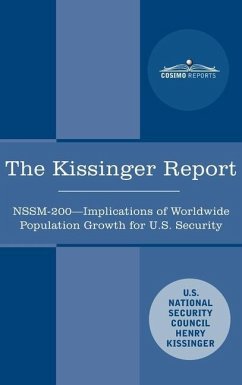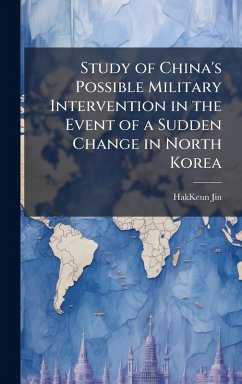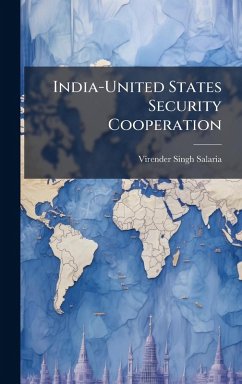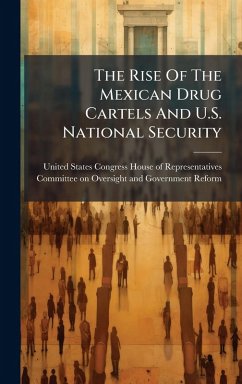
United States National Security Interests and North Korea
Versandkostenfrei!
Versandfertig in über 4 Wochen
29,99 €
inkl. MwSt.
Weitere Ausgaben:

PAYBACK Punkte
15 °P sammeln!
United States (US) policy towards North Korea has struggled to adequately address the US national security interests. Contrary to interests delineated in the US National Security Strategy, North Korea possesses nuclear weapons, demonstrates the propensity to proliferate weapons of mass destruction (WMD), destabilizes the Korean Peninsula with its military threat, violates the human rights and dignity of its citizens, and is listed as a state sponsor of terrorism, . This work identifies opportunities for cooperation with China, Japan, South Korea, and Russia to meet US security interests while ...
United States (US) policy towards North Korea has struggled to adequately address the US national security interests. Contrary to interests delineated in the US National Security Strategy, North Korea possesses nuclear weapons, demonstrates the propensity to proliferate weapons of mass destruction (WMD), destabilizes the Korean Peninsula with its military threat, violates the human rights and dignity of its citizens, and is listed as a state sponsor of terrorism, . This work identifies opportunities for cooperation with China, Japan, South Korea, and Russia to meet US security interests while exposing the challenges for the same. With the exception of terrorism, all countries share US interests related to North Korea. However, a significant divergence in ways and means complicates a coordinated approach. In general, the US and Japan support hard power, favoring all instruments of national power, while China, Russia, and South Korea favor a diplomatic approach to issues. In considering the positions of each country, the US should encourage a regional country to lead efforts in addressing common security interests through attractive diplomatic and economic means generally favored by China, Russia, and South Korea. This work has been selected by scholars as being culturally important, and is part of the knowledge base of civilization as we know it. This work was reproduced from the original artifact, and remains as true to the original work as possible. Therefore, you will see the original copyright references, library stamps (as most of these works have been housed in our most important libraries around the world), and other notations in the work. This work is in the public domain in the United States of America, and possibly other nations. Within the United States, you may freely copy and distribute this work, as no entity (individual or corporate) has a copyright on the body of the work. As a reproduction of a historical artifact, this work may contain missing or blurred pages, poor pictures, errant marks, etc. Scholars believe, and we concur, that this work is important enough to be preserved, reproduced, and made generally available to the public. We appreciate your support of the preservation process, and thank you for being an important part of keeping this knowledge alive and relevant.












